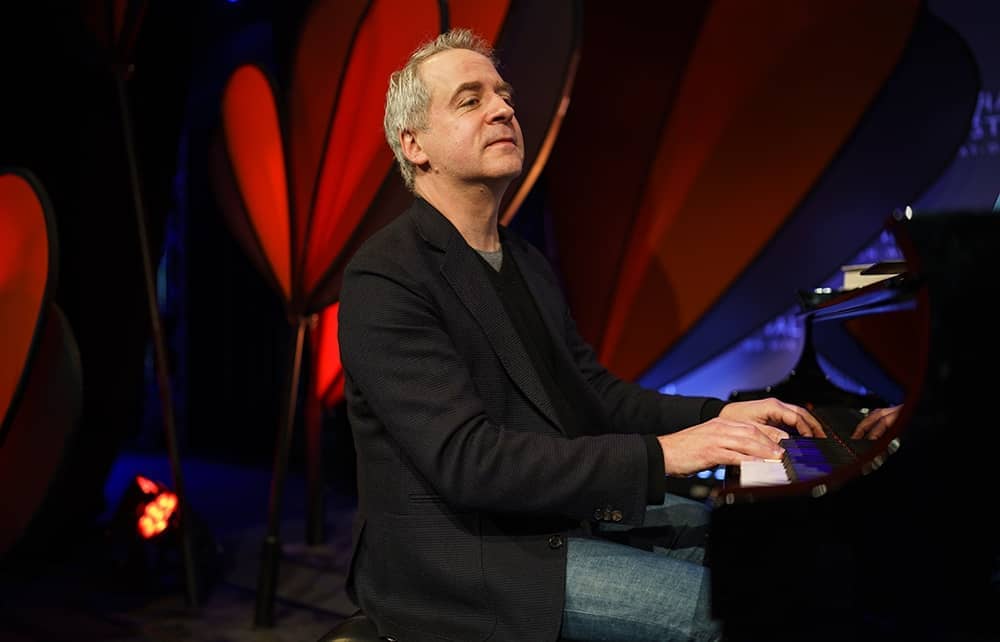Every Good Boy Does Fine – a banal phrase that also just happens to be the key to limitless wonder. You may have learned it, like Tom Stoppard, as Every Good Boy Deserves Favour, or perhaps as the rather more tension-fraught Every Good Boy Deserves Food (whose sinister implication haunted more of my childhood than I ever confessed to my parents). Whichever it is, this mnemonic for the notes that fall on the lines of the stave in the treble clef is where music begins for most of us: the key that turns hieroglyphs into sound and, eventually, meaning.
So it was for Jeremy Denk. But, unlike the rest of us, the American pianist, whose name comes bracketed with a long list of awards, including a prestigious MacArthur ‘Genius’ Fellowship, is a foregone conclusion – a good boy who has done rather more than fine.
Which would be a problem if this were the kind of memoir that revelled in will-he-won’t-he cinematic tension. But Denk is less interested in the competitions (often dismissed in self-deprecating parentheses), the rivals, setbacks and debuts, than in the quiet processes and people that underpinned them all: an amateur bassoonist local mayor; a too-rigid thumb; the strange sensuality of playing chamber music; a tendency to rush. Like that phrase itself, Denk’s career is just the framework for exploring something bigger and more interesting.
Anyone who has read Denk’s columns in the New Yorker will be familiar with the pianist’s wry, Sedaris-like tone of voice, his laconic approach to a revelation, his curiosity and breadth of interest and understanding. All make an easy transition to his beguiling first book, which follows his life from his childhood as the son of a former monk and a current alcoholic; an awkward piano prodigy, growing up in the not obviously propitious setting of smalltown New Mexico (summed up in an episode in which the young Jeremy decides to blow the minds of his classmates by blasting Strauss from his speakers on the school bus, to less than the desired effect); through his studies at Oberlin and Juilliard, stopping just short of major success; right on to the brink of the professional career that has since flourished.
The subtitle – ‘A Love Story, in Music Lessons’ – is where the real action happens. We meet Denk both as a pupil in countless practice rooms and studios, and as a teacher, as he grapples with the fundamentals of harmony, melody and rhythm, pulling us along with him in listening diaries, hand-drawn diagrams and metaphors – everything except technical jargon.
Music for Denk is the stuff of life and is best communicated and understood that way. Harmony, he muses, is all about erotics: the push and pull of desire, heightened and manipulated in tension and release. It is dynamic, exists only in relation, in motion, unlike melody – ‘a sort-of-object’ that you ‘feel in your mind, like you feel your wallet in your pocket’. As for rhythm, it’s not ‘playing in time’ but ‘playing about time… a beat with a soul’.
Denk has a tidy, aphoristic turn of phrase, but there’s nothing glib about the ideas folded so neatly inside – flat-pack concepts and questions that become suddenly unwieldy as you attempt to assemble them. He teases out the ‘unexpected moral dimension’ of rhythmic choice; probes the difference between Mozart and Beethoven (‘Mozart… assumes time as a precondition of expression; Beethoven wants to know what time is’), and questions the classical canon, truth in art and music’s role in the face of human grief (‘My feelings were real, but unlocking them at the piano felt fake. I was performing something that shouldn’t be performed’).
Running in counterpoint to these philosophical questions are sudden plunges into touchstone pieces and recordings (Ravel’s ‘Piano Concert for the Left Hand’; Brahms’s ‘Piano Trio’; Schnabel playing Schubert) and Denk’s own social and sexual awakening: his slow realisation that he is gay, his shifting relationship with his parents and peers.
But the ‘love lessons’ of the title refer to none of these. Denk reserves his greatest attention and affection for his teachers and for pedagogy itself. The pianist leads us from his very first sessions with the benign disciplinarian Mona Schneiderman (‘who lived right down the street’), to the no-nonsense university professor Bill Leland (Denk his sole pupil), to masterclasses with John Perry at Aspen (‘imagine a series of lectures by Danny DeVito on the sublime’) and, towering over all, to the gnomic, philosophical György Sebök (‘alternating between spirit guide and physics teacher’), who ‘opened this door in me to metaphor’.
Photographic glimpses into childhood practice notebooks and scores – the earlier ones quirkily illustrated, the later densely annotated – will feel disconcertingly familiar, whether you never progressed past Grade 2 or made it all the way to music college. Music, Denk almost makes you believe, is not something pristine and transcendent; it’s a lifetime of wrestling, repeating, crossing out and trying again. The difference between an officially certified ‘genius’ and the rest of us? Mostly graft. Oh, and a supple thumb.






Comments